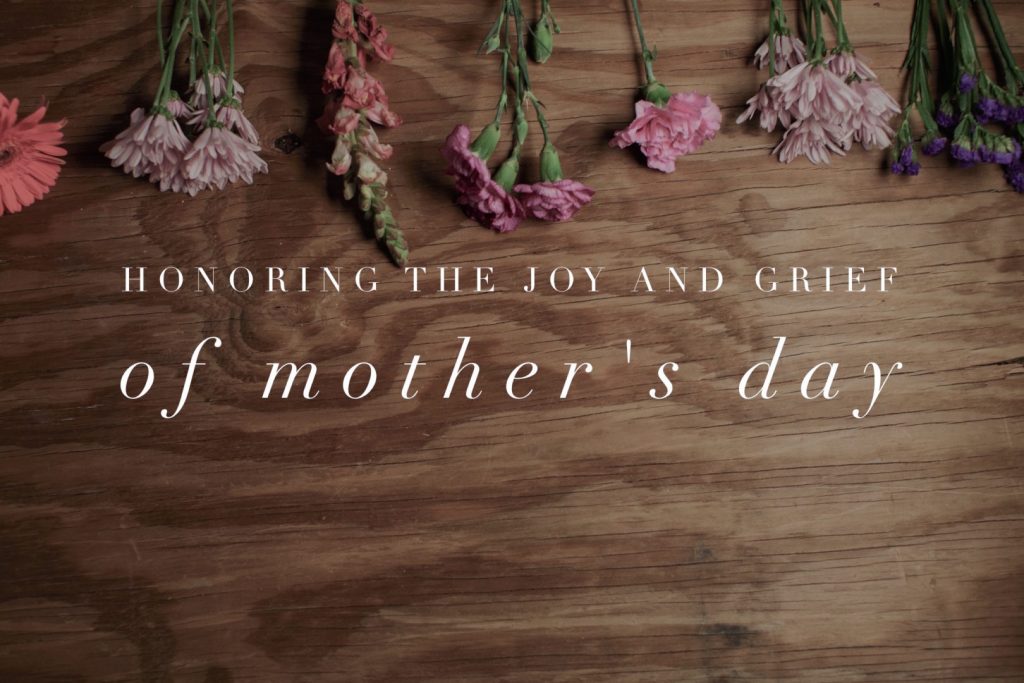Honoring the Joy and Grief of Mother’s Day

As we approach Mother’s Day, and celebrate those very special people in our lives, it’s important to understand, and remember, that not everyone can celebrate in-person with their parent. Likewise, some parents aren’t able to celebrate with their children. With this, it’s important to note that loss comes in many forms, and sometimes it’s not just triggered by death.
In this article, we’ll be discussing the loss of a parent or loved one as it relates to a crime. In an effort to be inclusive, we want to recognize that the Mother’s Day holiday can look different for many families. Some families have two moms, two dads, a single parent, a grandparent, or otherwise.
Many people experience tremendous loss and grief due to losing a family member to a crime. Mother’s Day, along with many other celebratory days, can often ignite depression and anxiety in those who no longer have this very special person here to celebrate with. “Confusing”, “traumatic”, “painful” and “healing” are some of the words that can be used to describe children’s feelings on Mother’s Day. We need to remember that children have their own way of expressing grief and sometimes they don’t express it at all. We should respect this, but also look out for behavioral changes which may indicate that they are struggling to cope. Robin Fiorelli, director of bereavement and volunteer services for VITAS healthcare says, “When someone doesn’t have a mother and is grieving, Mother’s Day can bring up the pain, almost as a reminder that it’s been a year or 10 years or 20 years or even 50 years since she’s been gone.” Parents who have lost a child to a crime can also feel many of the same emotions on holidays such as this one.
Some additional feelings that may arise over the loss of a loved one may include, but are not limited to:
- Anger
- Longing
- Yearning
- Sadness
- Bitterness
- Alienation
- Despair
- Loneliness
These feelings can be exacerbated over things like seeing posts on social media sites. Users often post pictures with their families on these very important days. Seeing posts of others enjoying their day with family can increase the severity of these feelings. There is nothing wrong with posting on social media, but we just have to remember that this may be a trigger for some who are experiencing grief.
There is no right or wrong way to commemorate Mother’s Day without a parent, but we have prepared some ideas that might help in coping with the loss of a loved one, as it can be a long process:
- Tell stories or share memories of your parent with others
- Create special crafts, photo albums or scrapbooks to remember your parent
- Cook or share your parent’s special recipes
- Write a letter to your parent, or journal about them
- Meditate as you “take a walk” with your parent or visit their grave
- Read stories or poetry about mothers
- Donate to a charity or volunteer in their honor
- Find closure for unresolved issues by attending a grief support group
In addition, there are ways that we can support others who have lost a loved one to a crime. The list below provides a few ideas, but is not exhaustive:
- Meet others where they are in their grief
- Let your friends know you’re thinking of them
- Say their loved one’s name(s)
- Support surviving family members
- Encourage self-care
- Be consistent
- Bring them a meal
- Take on household or outdoor chores for them
- Offer to do things like picking up their dry cleaning
- Give them a gift certificate
- Be flexible
- Be present in all interactions
- Help with their pets
- Regularly check in
- Offer to go for a walk with them
- Make them a music playlist
- Take them to the movies
- Bring them coffee and/or a treat
Remember, some people who are experiencing grief and loss may not know what they need or want. In this case, you may have to continually check-in. If you are taking on a task, you may have to do it without asking. Lastly, you are a person with your own emotions too, so be sure to take care of yourself and respect your own boundaries when supporting others.
A great resource to assist in the healing process after the loss of a loved one is the book, “I wasn’t Ready To Say Goodbye” by authors Brook Noel and Pamela D. Blair, PhD.
